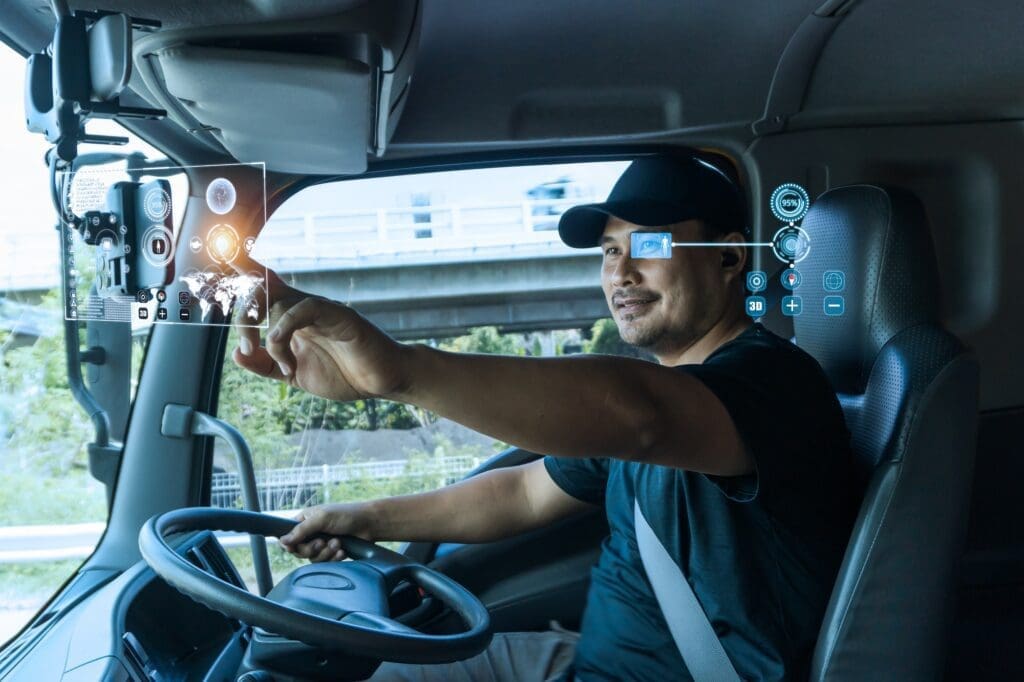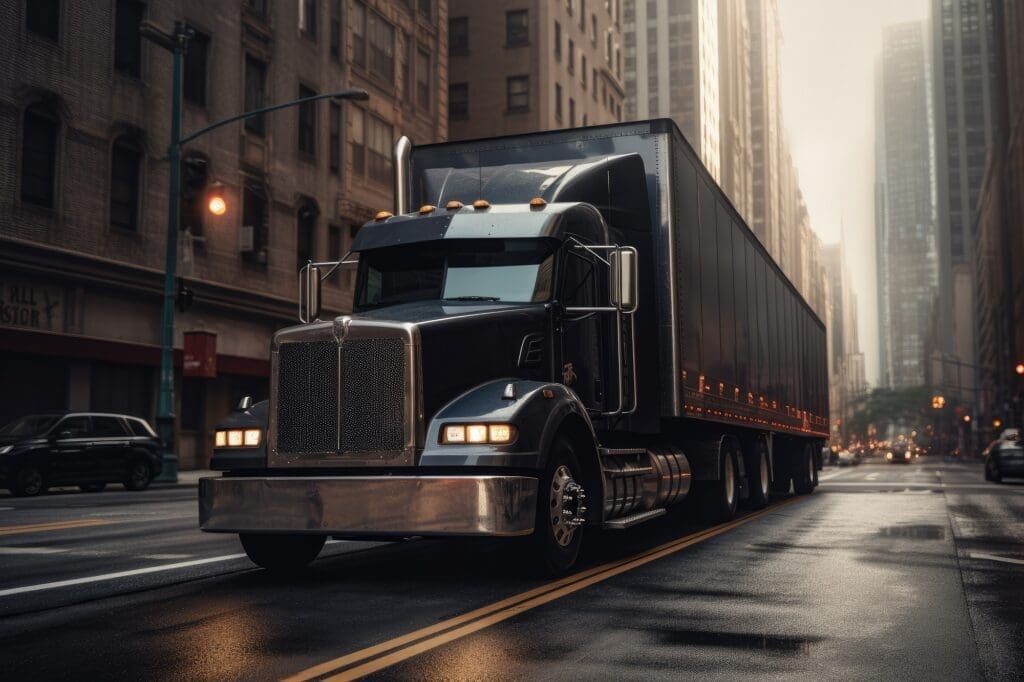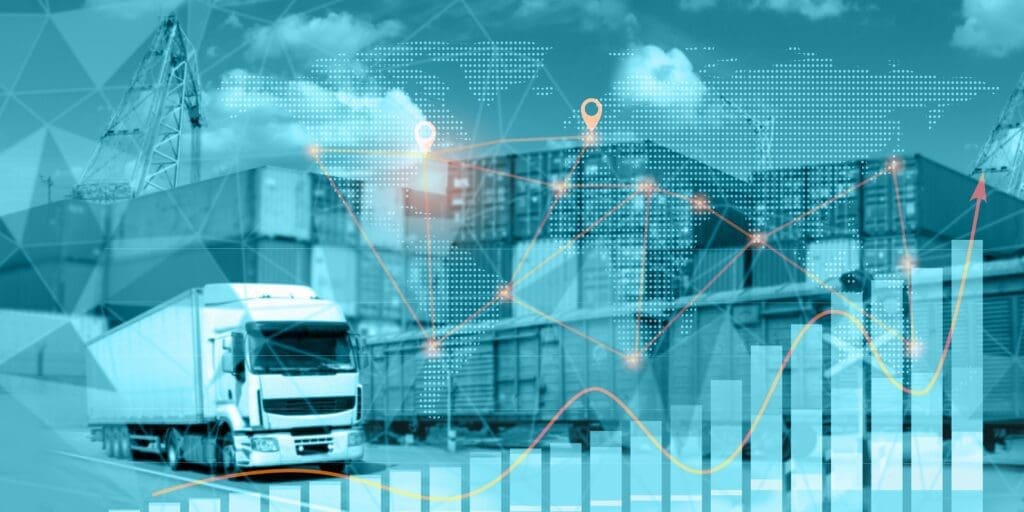Technology drives business today, and the shipping business is no different. Tech trucking news tends to revolve around the big critical breakthroughs, like platooning, autonomous vehicles, connected technologies, and electric and alt fuel vehicles, but some of the less well-known advances are just as fascinating—and could be just as helpful to fleets and drivers, and even those in charge of overseeing the safety of our highways.
For Drivers: Upgraded GPS and Steering Assist Technology
Though GPS has been around since the ’90s, it’s now being designed specifically for truckers. The TomTom Trucker doesn’t just give truckers the latest maps, but delivers SmartPhone messages, provides stopped traffic alerts, and even customizes routes for specific vehicles, taking into account size, weight, cargo, and speed.
Steering assistance has taken a giant leap forward, too. No longer just about ease and accuracy of steering, assisted steering applications now help drivers drive more safely. Bosch’s new intelligent steering systems can integrate functions like side wind compensation, lane-keeping, hands-on-wheel detection, and traffic jam assistance. The company also boasts that its driver assistance systems save fuel and cut down on CO2 emissions by maximizing performance and partly automating driver functions.
ZF Group also recently previewed a new steering assist system, OnTrax Lane Keeping Assist. Using a forward-facing camera, the system determines the truck’s lane position and gently countersteers if the truck begins to drift into a lane without signaling. The system also has a Lane Changing Assist, which utilizes side-mounted radar sensors to alert drivers to vehicles in their blind spots: If a driver signals that he is about to make a lane change, the system vibrates the steering wheel as a warning that another vehicle is in that space. The system should be available for commercial trucks in 2020.
For Shippers and Fleets: A Tiny “Clock” with a Big Impact
Asset tracking can provide a wealth of information, from visual proof of product location to remote trailer temperature control. And asset tracking is about to get better—and smaller.
Imagine a device about the size of your pinky fingernail that provides real-time indoor and outdoor tracking of any asset from toothbrushes to trailers, with location accuracy within a foot. A device that also offers recording and reporting capabilities, with environmental sensors so accurate they could report that one side of a pallet got too warm from the sun while the other side of the pallet maintains the correct temperature. A device you can purchase at a low per-unit cost without installing beacon systems.
That magic-sounding device will soon be a reality. LocatorX’s Global Resource Locator is in its final engineering phase. The locator uses a patented solid-state molecular atomic clock, based on one developed at Oxford University a few years ago. “We are basically marrying GPS platform satellite tracking with solid-state nanotechnology to develop a highly accurate tracking system at a minimal price,” LocatorX President and CEO Scott Fletcher recently told Heavy Duty Trucking. The device could be especially helpful for time-critical shipping. “We can customize alerts and alarms for customers and provide unique bar codes allowing them to track an item or shipment at any level they want. We can pinpoint a product recall, for example, down to where a crop was grown, packed, to the distribution center… A fleet or a shipper can scan a shipment from a distance and know if the items they’re interested in are on the truck and on schedule to their destination.” They should also help deter theft. “The devices are so small, you can have multiple ones in a single shipment—or place the device in the cardboard packaging instead of on the product itself,” said Fletcher. “So it is virtually impossible for thieves to steal a pallet of goods and disable the tracking capabilities.”
An additional feature: No batteries needed. A vibration-activated energy-harvesting coil powers the Global Resource Locator. “If it’s not getting a query signal, it goes into hibernation mode,” Fletcher said. “So if the chip is on a pair of sneakers and sits in a warehouse for three months, it will be dormant. But if a forklift comes in and lifts the pallet and takes it to another part of the warehouse, the device will wake up and record that move.”
For DOTs: Roadway Sensors
Roadway sensors, typically used to record vehicle weights and detect traffic, can also measure roads’ environmental conditions. The ePave Project, a joint project between the University at Buffalo and China’s Chang’an University is developing self-powered wireless sensors that will be able to monitor surface temperature, moisture, and snow accumulation, helping DOTs to repair breaks and potholes — or preempt them altogether. ePave’s sensors are powered by a type of wireless charge called Piezoelectricity, which eliminates the need to use batteries or tear up roads for installation.
Though ePave’s technology is still in the testing phase, the Arizona Department of Transportation (ADOT) is already using environmental roadway sensors along Interstate 40. The highway between Ash Fork and Flagstaff is especially susceptible to icy roads, so ADOT installed sensors that connect to ADOT Road Weather Information System locations that use cameras and instruments to provide up-to-date conditions. Some sensors record the temperature of the ground beneath the road, while others measure the salt content of road surface moisture, which affects the freezing point. Both types of sensors warn ADOT if the temperature falls below a certain point, signaling the need for a de-icing crew.
For Heavy Equipment Transport Needs, Mission Critical Delivery, and/or Unusual shipments: Next Exit’s White Glove Service
Okay, we’re not new (which is a good thing when you’re trusting a shipment to a logistics company), but we do utilize the latest technology to ensure that your shipment gets where it needs to go, safely and on time. At Next Exit, we earn the trust of our clients with efficiency, transparency, and security . In addition, we understand how to handle freight services for unusual, oversize, or overweight shipments and are certified to arrange the shipment of hazardous materials. To learn more about our services, call Next Exit Logistics at 866-624-2661 or contact us via email.




